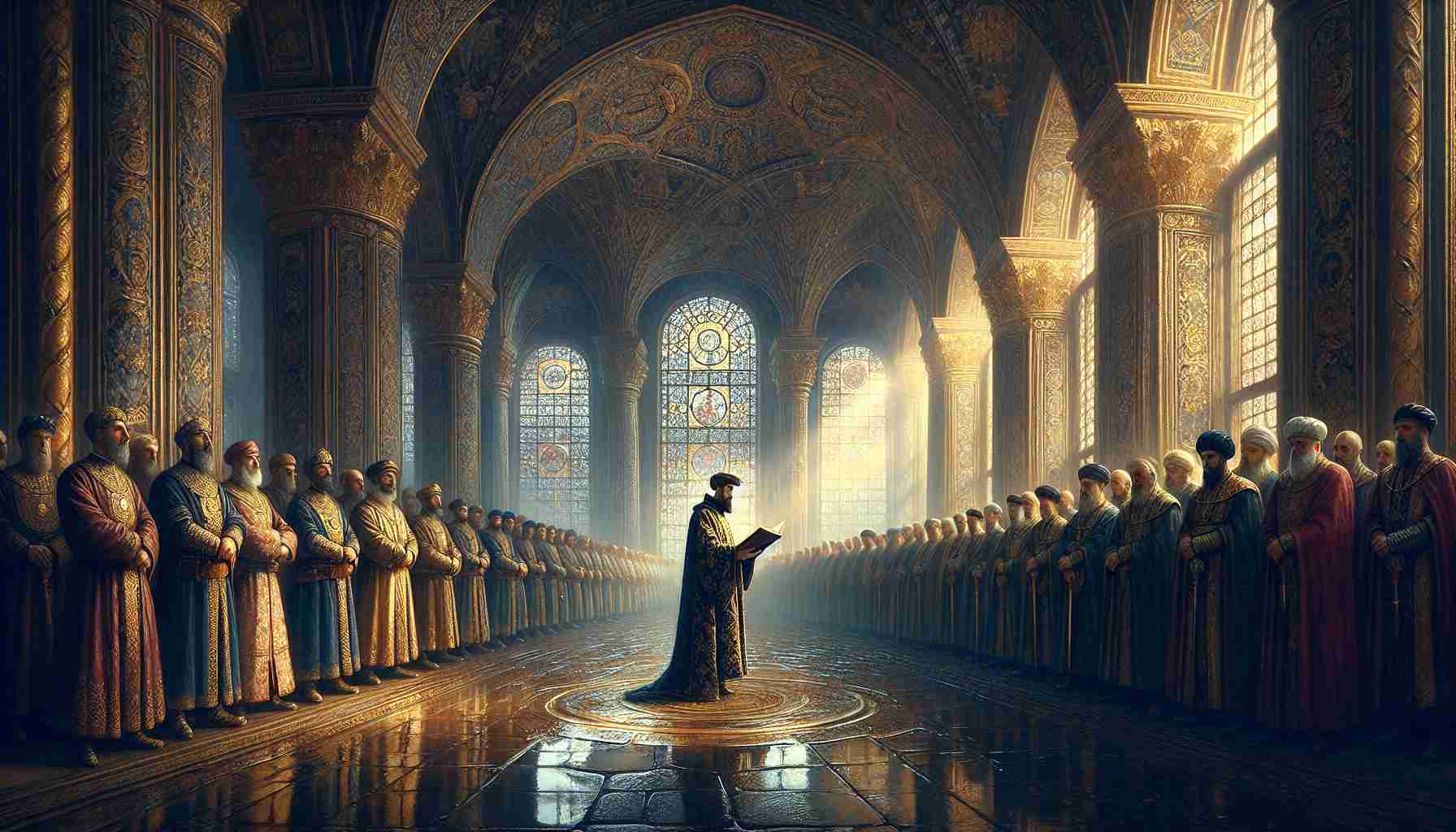

Rain gathered like breath held too long over the cobblestones of Augsburg, pooling in the seams of the city that trembled between old loyalties and a rising truth. The air smelled of parchment, wax, and the iron scent of chainmail as papal guards lined the corridors of the episcopal palace. On the morning of June 25, 1530, shadows of history tangled beneath vaulted ceilings as noblemen and theologians moved into position—not for war, but something far graver. A confession.
The emperor had arrived days earlier, Charles V, Holy Roman Emperor, ruler of realms vast as the imagination could hold and loyal son of the Church. He had summoned the Diet of Augsburg to end religious division, to call the German princes to unity under Rome, sword-sheathed peace beneath the cross. But what stood before him now was not unity—it was defiance wrought in ink and fire.
Philipp Melanchthon, scholar with eyes too soft for the times, carried the weight of the Augsburg Confession in trembling hands. His Latin draft, polished, diplomatic, yet unyielding, was ready. But it was Christian Beyer, chancellor to Elector John the Steadfast of Saxony, who read it aloud, his voice echoing bold as cathedral bells through St. Anna’s cloistered halls.
“For with the heart man believes unto righteousness, and with the mouth confession is made unto salvation,” declared Article IV—justification by faith alone—Romans 10:10, laid like a sword across centuries of indulgences and ritual. Murmurs swept the court like locusts in wheat. Cardinals flinched, bishops clutched beads. Yet the thirty-one articles unfolded unflinchingly, like banners raised against the wind.
This was more than doctrine. It was a cry of the soul.
***
Years before, a monk named Luther had nailed complaints to a Wittenberg door, but this—this document—gave the reformers a nation’s voice. Princes like John of Saxony, George of Brandenburg, and Ernest of Lüneburg stood not merely for theology, but for truth born in fire and scribed in blood. Their coats of arms embroidered into the margins of the confession gave it the weight of sovereign will.
The façade of harmony cracked.
Whispers in the halls twisted like incense smoke. Rome saw treason; the reformers, testament. Behind the political chessboard, families trembled at the thought of war. Would sons be lost to pike and powder over a definition of grace? Still, none recanted. When Charles V refused to hear the German version publicly, saying Latin sufficed, the act was clear—this was no dialogue, only verdict.
But the ink could not be unspilled.
night fell heavy that day, though torches burned long in the palaces of Augsburg. Melanchthon, ever soft amid sharp men, bent over candlelight and worried lines of Latin, wondering if his gentler logic had cost the Reformation its spine. But John the Steadfast, prince by name and nature, reassured him: “We do not yield that which is God’s.”
Through the stone archways of the Hofburg, the confession circulated like a whispered gospel, taken west and north—into Norway’s cold sanctuaries, across Sweden’s forests, eventually rising again in Geneva, in Edinburgh, and later, across an ocean into the painted chapels of the Americas.
But in that moment, it was merely trembling parchment braving a storm. The emperor’s silence, later refusal, made clear Rome would not bend. Yet the protestants stood. Not as rebels. As confessors.
***
The building where the confession had been read still stands—renovated, yes, time-softened—but echoes hide in its corners. Some say the floorboards creak louder near where Christian Beyer stood, as though truth impressed itself upon grain and joint.
Centuries later, pilgrims trace their hands along the weathered stone, whispering the words of Article IV as if defense still laced the air. For though the Confession was later rejected by the Council of Trent, and war would follow like thunder behind lightning, the moment of declaration was a birth.
Power had once silenced hearts, but now hearts had cried out, and God had upheld His Church—not by might, but by confessing tongues.
Rain still falls in Augsburg, some June mornings cooler than most. Locals say that on the 25th, the bells ring a moment longer. Tourists barely notice. But above the square, behind the stone and stained glass, hallways breathe a history too easily forgotten—of trembling hands that would not yield, of princes who risked thrones for the gospel, of a scholar who never raised a sword but helped craft an unbreakable truth.
And somewhere in the vaultless heavens, Isaiah’s words answer Romans': “My word... shall not return unto me void.”
So it is.